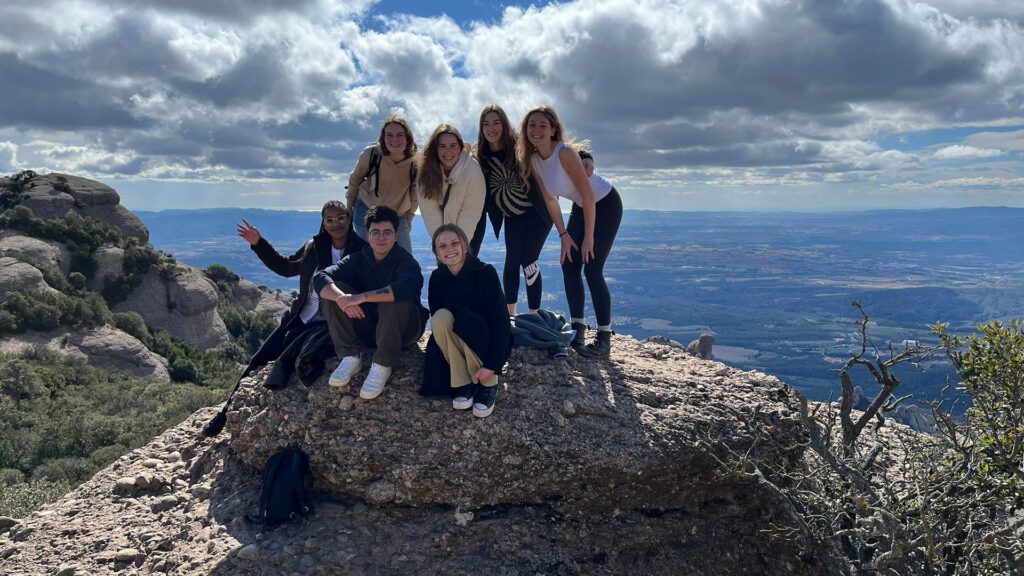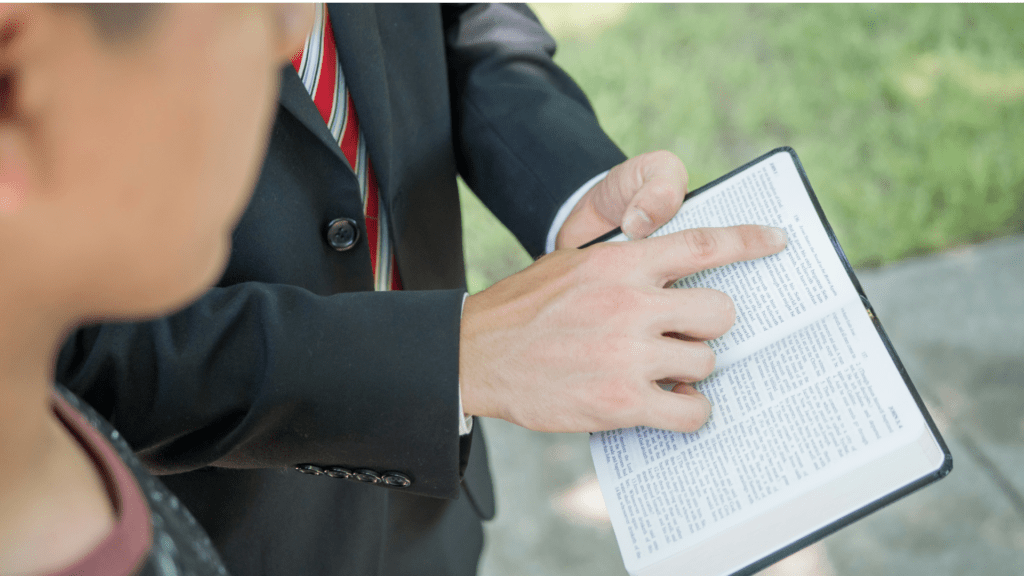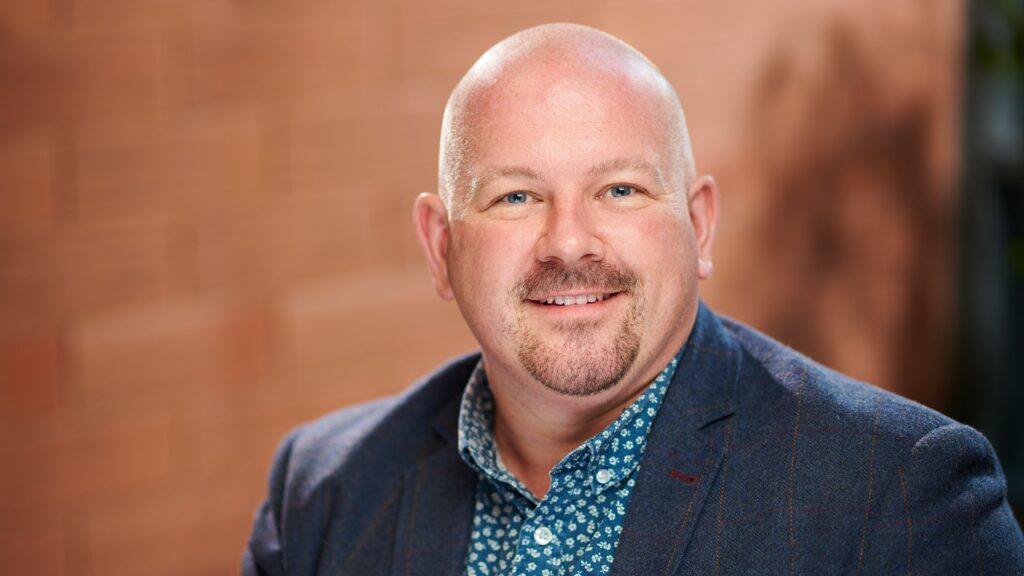What does education, child protection and politics look like in north eastern Europe? How does this compare to the UK? Social sciences students recently embarked on a field trip to the Baltic state, Lithuania to explore what life is like for those that live, study and work there. We spoke to student Dylan Chesters to find out more about the trip.
What was the purpose of the trip to Lithuania?
The purpose of the trip to Lithuania was to expand our knowledge and apply our learning around the child protection, education and political systems of another country. We took part in a range of sessions on topics such as the evolvement of each of these systems since the fall of the Soviet Union. With a better understanding of these institutions and processes, we were able to make comparisons with other countries and the UK. Studying in an international context gave us a new perspective on these issues and it put our previous learning into context.
What locations and activities did the trip involve?
Most days involved attending morning lectures at Vytautas Magnus University followed by an afternoon of free time and sightseeing. Kaunas is the ‘European City of Culture’ this year so much of the city was undergoing redevelopment in preparation for summer events. Some highlights from Kaunas include visiting the 14th century medieval castle and surrounding parkland, trying authentic Lithuanian cuisine in a local restaurant, and visiting some local antique shops and thrift stores. We also had one night in Vilnius (Lithuania’s capital city) at the end of the trip. For this part of the trip, we spent most of our time exploring Vilnius’ sprawling old town which included visits to Gediminas Castle Tower and Vilnius cathedral. Both cities were very impressive.
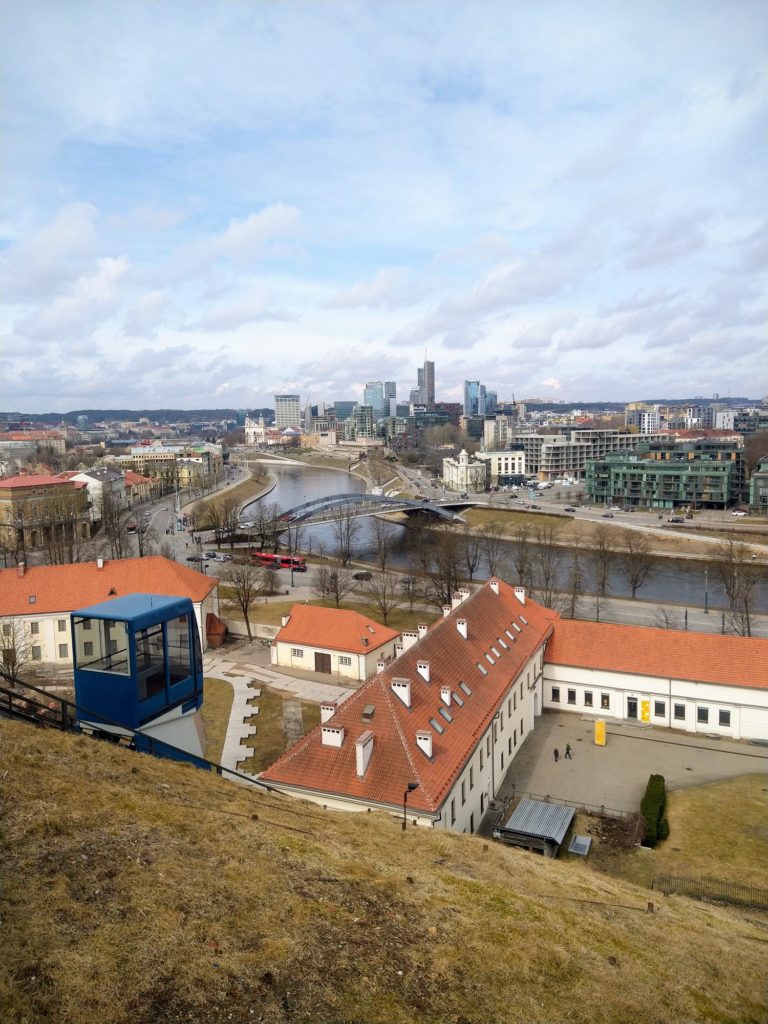
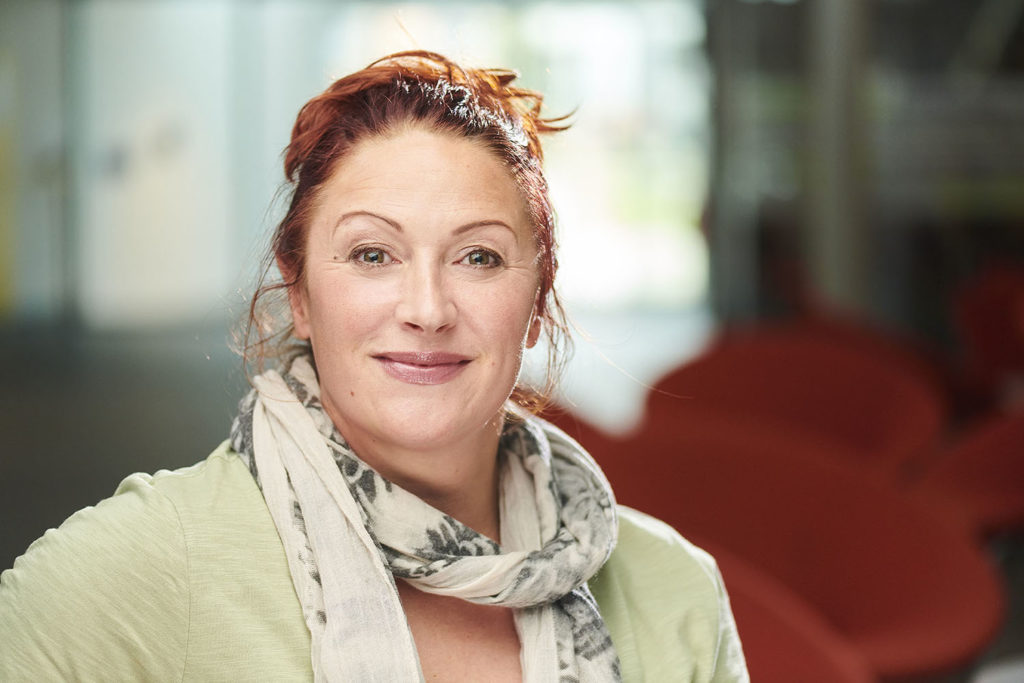
“The module was designed as a hands-on learning experience, of which the field trip itself is the primary learning method. It provides students with the opportunity to study a particular society and culture through some of its contemporary issues by engaging in a focused and intensive period of study in that country. In 2021/22, the country was Lithuania but we try to travel to different countries each year. The focus of the module is exploring both comparisons and contrasts between the country we visit and the UK and students use the experience of difference to explore social and cultural issues and problems.
Dr Melanie Lang, Senior Lecturer in Social Sciences
How has the trip benefitted your studies and knowledge?
There were several benefits from this learning experience. The main benefit was gaining the experience of studying in an international context in a region (the Baltics) which I had never visited before and knew little about. The field trip experience has given me new insights into eastern European and Baltic culture, new understandings of how teaching is conducted in Lithuania and what life is like for students in Lithuania, and new perspectives on childhood, Lithuanian and eastern European politics, and understandings of autism and inclusive education.
How has studying social sciences at Edge Hill University enhanced your employability?
It has enhanced my employability by providing me with opportunities that I wouldn’t have otherwise had. Studying a social sciences degree helps to develop your critical thinking skills, analytical skills, and your ability to be open minded. In addition to these transferable skills, studying in an international context is helpful in the sense that it increases confidence when travelling, living, or working abroad. In today’s globalised society, having that international experience is going to be beneficial on my CV which will ultimately help my career prospects.
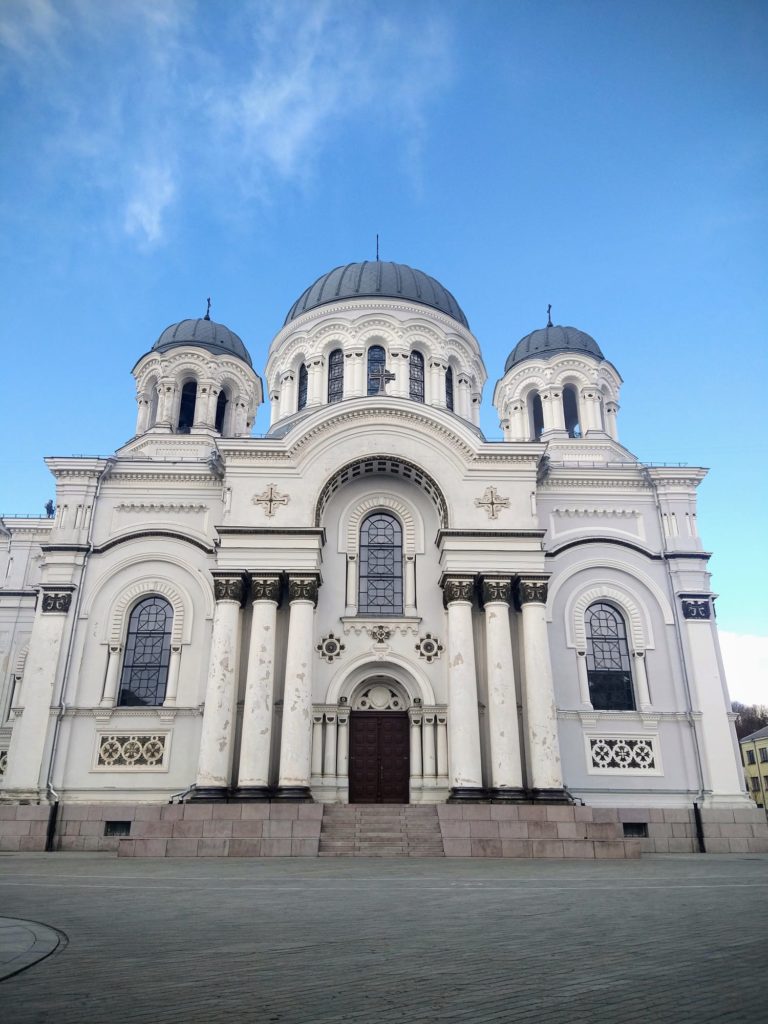

“Students got to experience a snapshot of life in a different country by visiting Lithuania and having lectures there from Lithuanian university staff on various themes (including childhood and youth, dark tourism, Lithuanian history and culture). They also enjoyed more informal learning opportunities, visiting some of the major cultural sites in Kaunas and Vilnius – Kaunas Castle, the M.K. Ciurlionis Art Museum, and the yard gallery of street art in Kaunas, and the old town, cathedral, and Jewish quarter in Vilnius. This hands-on experience is a great way of learning about similarities and differences between people, places, histories and cultures. Knowledge and experience of other cultures and perspectives is invaluable in the workplace and beyond and the experience of travelling and studying abroad can build knowledge, independence and confidence.”
Dr Melanie Lang, Senior Lecturer in Social Sciences
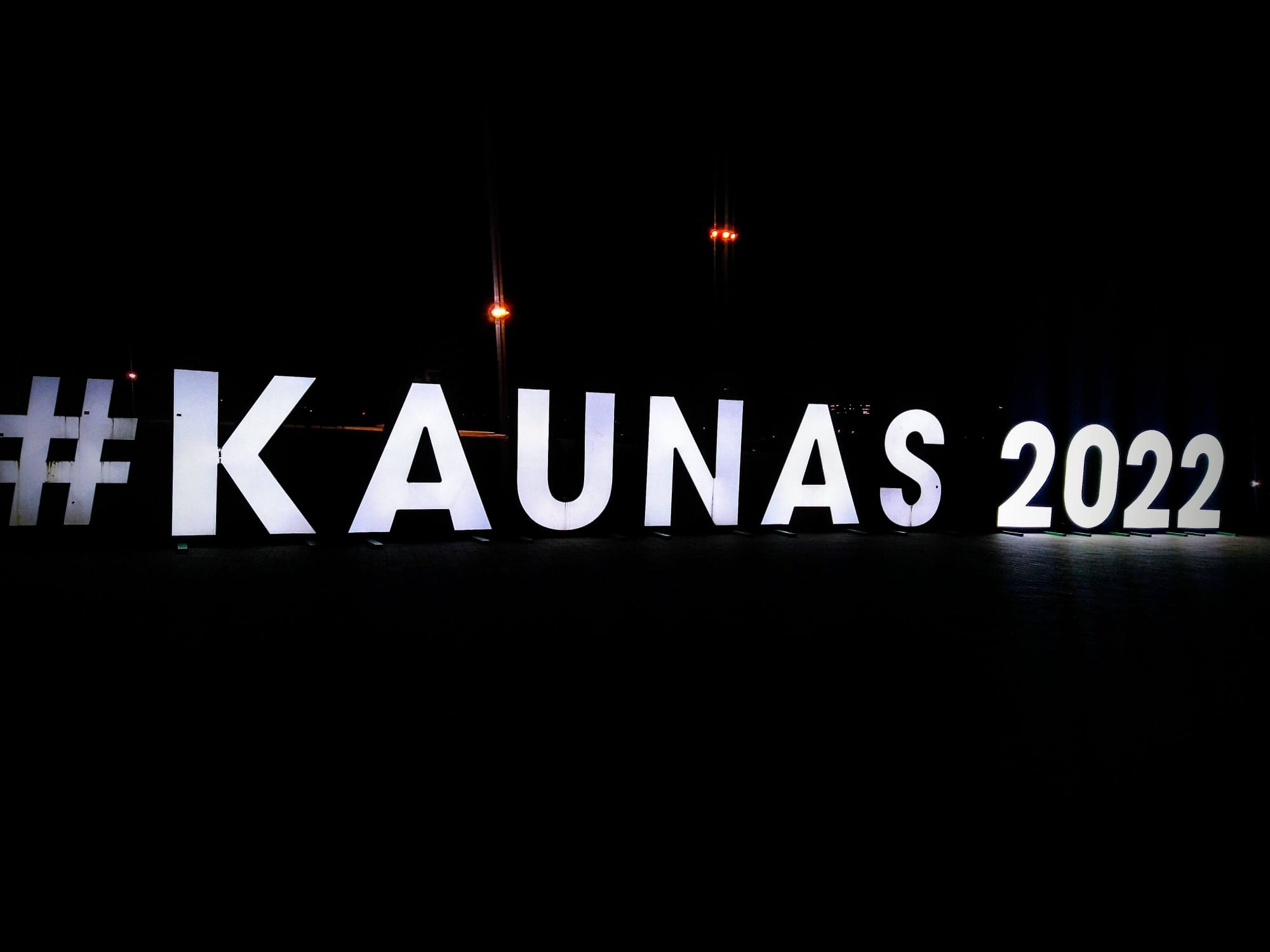








All the photos from Lithuania in this feature were taken by Dylan Chesters
July 6, 2022
